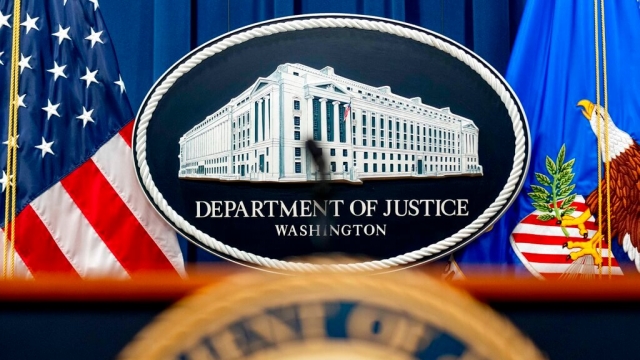The Department of Justice has indicted former President Trump on dozens of counts of mishandling classified documents. The indictment has renewed protests from GOP lawmakers and allies of the former president, accusing the Department of Justice and the Biden Administration of so-called weaponizing federal agencies.
"The Biden administration continues to egregiously weaponize the federal government against Joe Biden's top political opponent," said Rep. Elise Stefanik (R-NY) and Republican Conference Chair in a press conference on June 13th.
The relationship between the President and the DOJ is complicated, and there's been disagreement over whether the President has the power to dictate investigations.
"If you asked me, I would say that it's improper," said Bruce Green, Louis Stein Chair of Law at Fordham Law School. "But there are some people who have the view, and it's not a far-fetched view, that the president is the chief executive and all power derives from the president.
SEE MORE: Trump and Biden had classified docs. Why is only Trump being charged?
President Biden has largely refused to comment on the proceedings and repeatedly distanced himself from the department. When asked about the indictment in early June at a press conference with British PM Rishi Sunak, the President stated, "I have never once — not one single time — suggested to the Justice Department what they should do or not do, relative to bringing a charge or not bringing a charge."
This echoes his earlier statements as the President-Elect when introducing his nomination to the Attorney General back in January 2021: "I want to be clear to those who lead this department who you will serve: You won't work for me. You are not the president's or the vice president's lawyer."
There are no laws establishing a formal boundary between the president and the Department of Justice. But the DOJ has internal policies, and some experts emphasize its culture of 'independence.'
As Green explained, "During the Nixon administration, it appeared that President Nixon was misusing the, you know, the FBI and the Justice Department. And after that, when President Ford was elected and he was appointed as the pick to be attorney general, the Justice Department adopted policies that have been continued pretty much since then."
SEE MORE: Fact-checking Trump's Bedminster speech following his arraignment
He also noted that breaking these rules is not a criminal offense: "They're internal policies. So they're not they're not laws adopted by Congress."
This "culture of independence" became a flashpoint during the Trump administration. Former President Trump openly commented on ongoing investigations or called for the DOJ to take action. For example, after close ally Roger Stone was convicted of obstructing a congressional investigation, DOJ prosecutors recommended a sentence of seven to nine years in prison. Hours after Trump tweeted that the case was "horrible and unfair," the department intervened for a lesser sentence. The original prosecutors quit in protest.
When asked if his tweet was interference, the former president replied, "No, not at all; he was treated very badly."
In a New York Times interview early in his presidency, President Trump was asked if he would order the DOJ to reopen the investigation into Hillary Clinton's emails. He responded, "I have absolute right to do what I want to do with the Justice Department."
Despite being part of the executive branch, the Department of Justice is generally viewed as an independent investigative body. But that independence is neither written in the constitution nor determined by the Supreme Court. And that ambiguity leaves much room for misunderstanding and debate. And as the House Judiciary Committee looks to increase its scrutiny of the DOJ and federal law enforcement, the department may find itself in the political crosshairs for many months to come.
Trending stories at Scrippsnews.com




